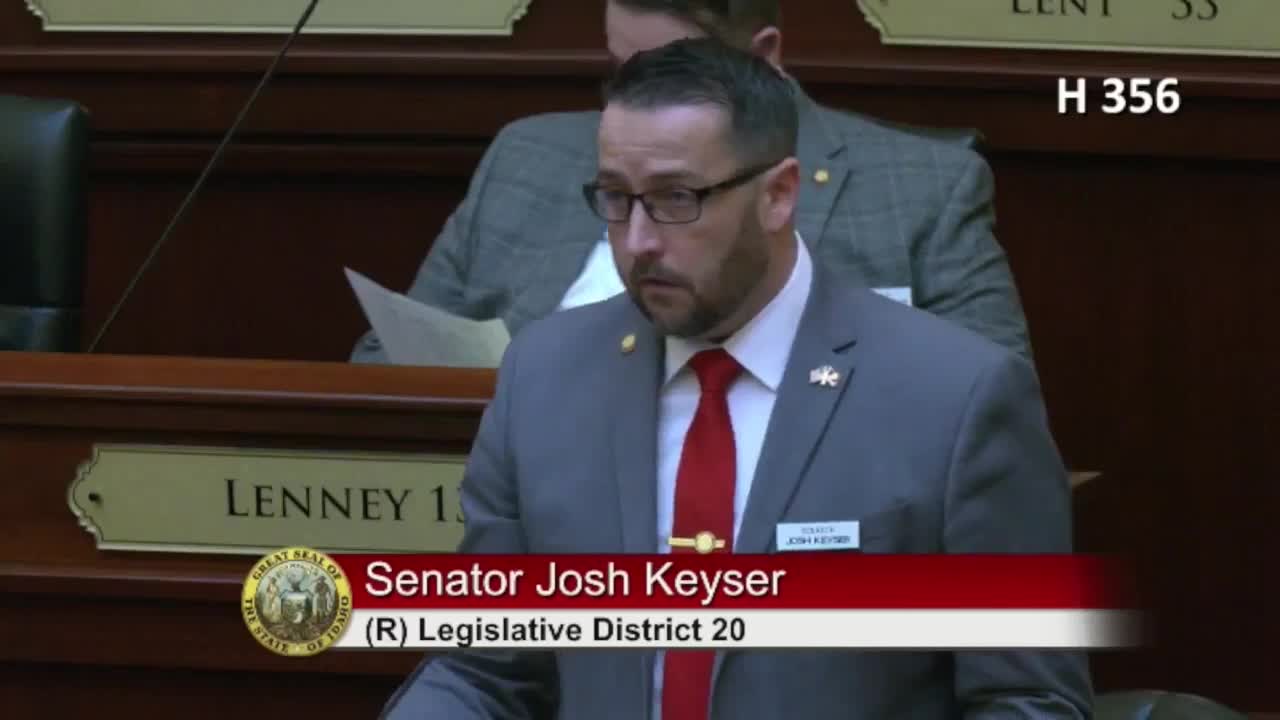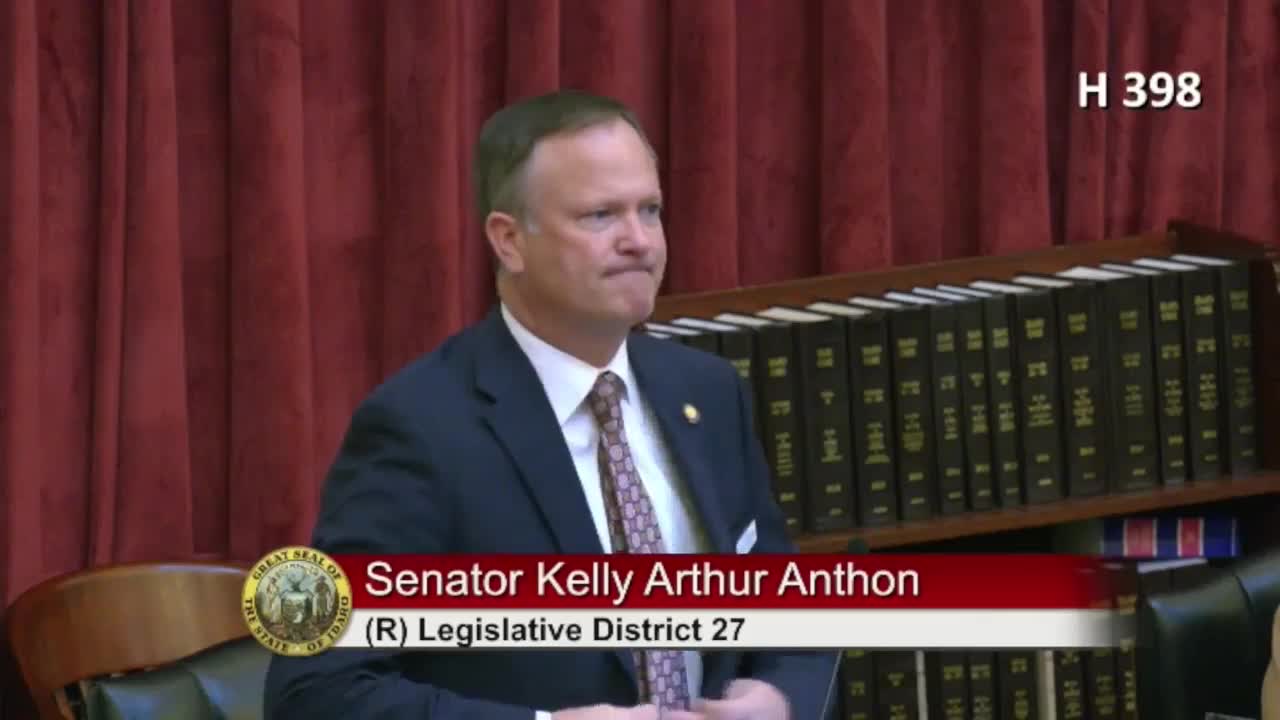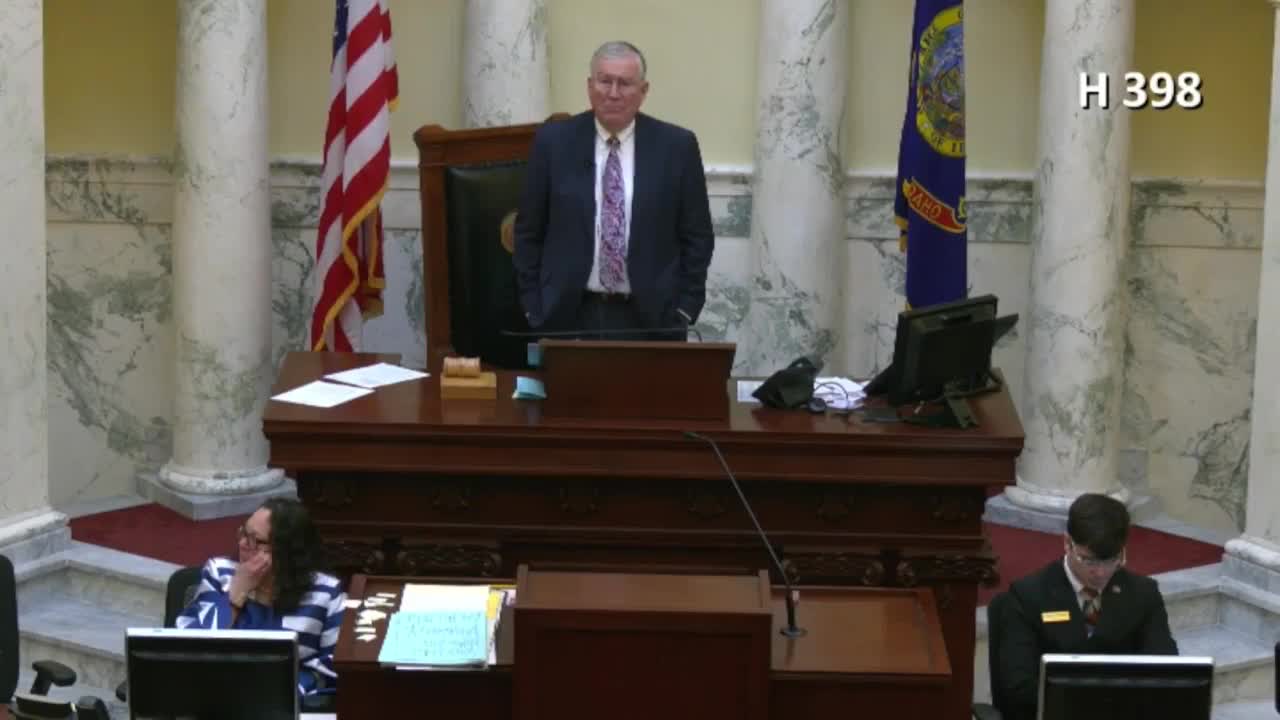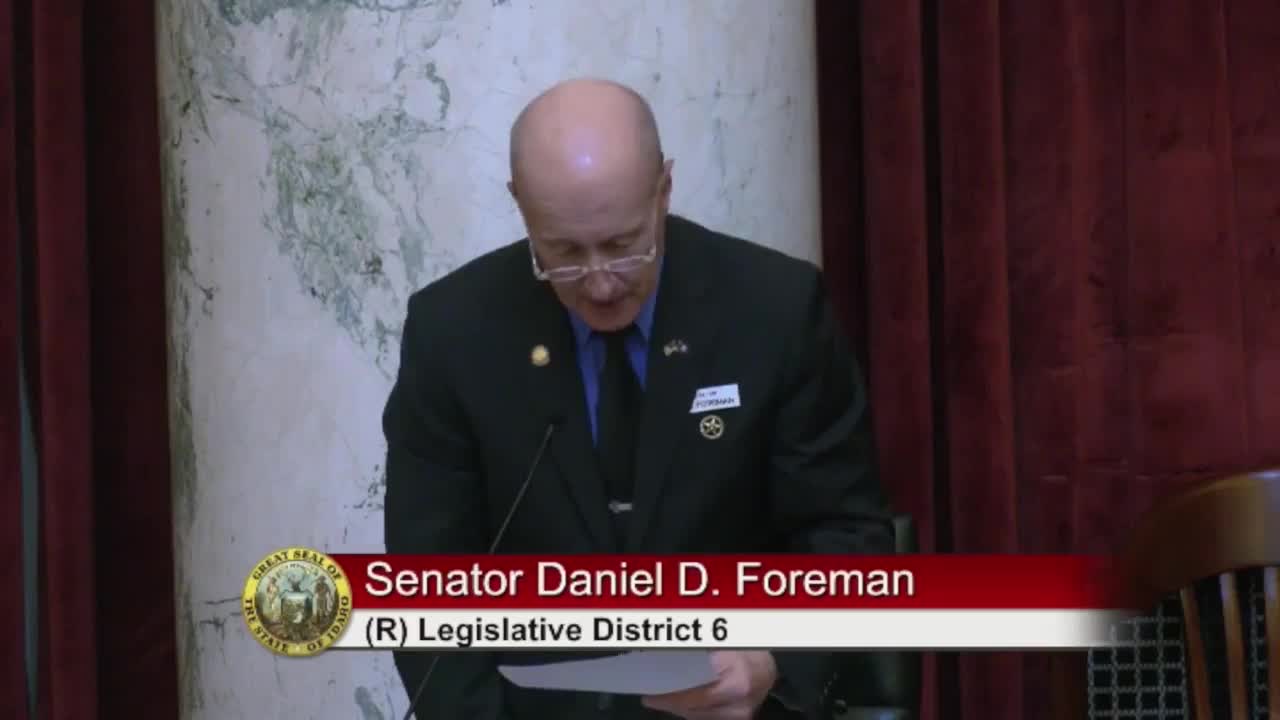Article not found
This article is no longer available. But don't worry—we've gathered other articles that discuss the same topic.

Senate debate questions retroactive power in bill targeting foreign adversary land ownership

Senate passes lobbying recodification after lengthy debate over 'indirect lobbying' definition

Votes at a glance: bills the Idaho Senate passed April 2

